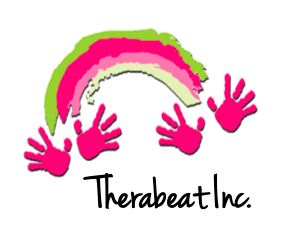In 2016, Gooding and colleagues sought to understand the effect of Music Therapy (MT) services on preoperative anxiety in children who were receiving same day surgeries in ambulatory surgery centers. 103 pediatric patients, between the ages of 2 and 9 years old, undergoing various ambulatory surgical procedures in a hospital-based ambulatory clinic participated in the MT protocol (Gooding et al., p. 192). Gooding and colleagues conducted a pilot MT program for the patients who elected to receive MT services from board certified music therapists (MT-BCs), prior to their operations. The patients’ doctors provided consent and patients and their families elected to receive MT services. The research done by Gooding’s team is considered a quasi-experimental quantitative study due to the lack of random assignment of participants. According to Gooding, the purpose of this study was to investigate the effect of preoperative music therapy services on “child distress, coping, and anxiety behaviors, parental perceptions of treatment, and parent satisfaction in a pilot music therapy program in an ambulatory surgery center” (p.192).
The effects of music therapy services on stress, coping, anxiety, parental perceptions, and parent satisfaction were measured and collected from the patients who participated in preoperative MT interventions at the ambulatory surgery center. In addition, background information, how the patient was seated, who was present with them when the MT-BC entered, and the type of surgical procedure they were waiting for was also collected. The researchers relied upon the MT-BC’s observations of the “initial affect, ending affect, and behavioral responses'' (192) of the patient based on the Gale Encyclopedia of Childhood and Adolescence and on the parent-completed questionnaire completed after the MT session. Two standardized instruments were used: Modified Yale Preoperative Anxiety Scale (YPAS-m), and the Child-Adult Medical Procedure Interaction Scale-Short Form (CAMPIS-SF). These tests were administered by the MT before and after MT services.
The MT-BC collected the data for analysis during each 30–45-minute session prior to the surgery. The sessions followed the same format but were adjusted to meet the needs of the individual patient, their family, and the flow of the surgical center. The MT-BC provided live music, age-appropriate instrument play, singing, and musical games to distract the patient during preoperative preparation. The MT-BC also provided positive reinforcement, distraction, and procedural information when applicable. Most patients showed positive affect towards MT services prior to operation. There were two affect categories: pleasant types of affect and unpleasant types of affect. More children experienced pleasant affects than those that experienced unpleasant affects. Patients responded to the MT interventions by singing along, playing instruments, moving to the music, and by maintaining attention towards the MT-BC. Post-intervention scores--for amount of perceived stress, coping, anxiety, and parental perceptions--were higher and better than the pre-intervention scores. The overall results from the study “suggest that children tended to show desirable behavioral responses and low levels of distress during preoperative music therapy treatment” (p.198).
Of the parents that were present with their child during the preoperative MT session, 70% completed the Parent Procedure Questionnaire and wrote comments about the services received. Comments included “expression of gratitude, enjoyment of the child and or parent, benefits of MT for the child or parent, praise for the MT-BC of the facility, expressions of approval for the idea of continued preoperative MT, desire for MT in the future, feelings that MT was a pleasant surprise, feelings that MT was a helpful distraction, and statements that they would recommend MT services to others” (p.198). Reducing preoperative anxiety, through MT, improved the experience of both the patient and the parent or guardian with them.
According to the findings of this study, MT services which addressed preoperative anxiety for both the child and parent, were extremely beneficial. If done well and efficiently to follow the flow of the ambulatory surgical center, MT services would be an asset and improvement upon the ambulatory surgery center’s services. The findings of this study also suggest that MT reduces preoperative anxiety, improves the perception of quality of care, and improves the overall experience for both the patient and their family. Two limitations of this study were the quasi-experimental design and the limited researchers available for data collection. Future studies should consider a truly experimental design and the MT-BC providing services should solely focus on the interventions, while another researcher focuses on data collection. In this study, the MT-BC provided the services and collected the data, which “may have increased the potential for bias” (pg. 198).
-Kathryn Trujillo, Music Therapy Intern
Reference:
Gooding, L., Yinger, O., & Iocono, J. (2016). Preoperative music therapy for pediatric ambulatory surgery patients: A retrospective case series. Music Therapy Perspectives, 24, p.191-199 DOI:10.1093/mtp/miv031
